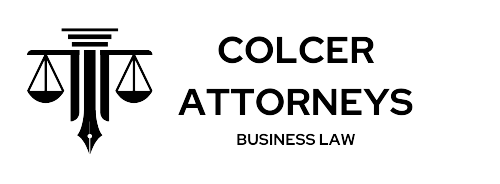1. Legal basis of the exception of non-performance
The Romanian Civil Code („RCC”) provides in Article 1556 that:
„(1) When obligations arising from a synallagmatic contract are due, and one of the parties does not perform or does not offer performance of its obligation, the other party may, to a corresponding extent, refuse to perform its own obligation, unless it results from the law, from the parties’ will or from the customs that the other party is bound to perform first.
(2) Performance may not be refused if, given the circumstances and considering the minor importance of the unperformed obligation, such refusal would be contrary to good faith.”
The exception of non-performance is a contractual defence mechanism, traditionally recognized in continental private law. It grants one party the right to suspend the performance of its own obligations when the co-contracting party has failed or is unwilling to fulfil its agreed obligations.
This mechanism does not imply the termination of the contract but only a temporary suspension of performance until the other party fulfils or offers adequate assurance that it will fulfil its obligations. Thus, the exception of non-performance serves as a legal pressure tool to restore contractual balance.
2. Conditions for applying the exception of non-performance
To invoke the exception of non-performance, the following cumulative conditions must be met:
• Synallagmatic (bilateral) contract: the exception applies only in contracts with reciprocal obligations;
• due obligations: the unfulfilled obligation must be due;
• non-performance or lack of offer to perform: the other party must have failed to perform or not made a genuine offer to perform;
• no obligation of prior performance: if by law, agreement, or custom one party is required to perform first, that party cannot invoke the exception.
Regarding the conditions for invoking the exception, the Romanian High Court of Cassation and Justice („RHCCJ”) ruled in a decision that a party cannot invoke the exception of non-performance of a contract based on the other party’s failure to fulfil obligations from a different agreement between the same parties (Decision no. 2413 of June 25, 2014, Second Civil Division of the High Court of Cassation and Justice).
Moreover, the refusal to perform a contractual obligation must be proportional to the non-performance of the other party. If the non-performance is minor, paragraph (2) of Article 1556 RCC limits the applicability of the exception by invoking the principle of good faith.
3. Legal nature and function
The exception of non-performance is preventive and temporary in nature. It does not function as a sanction per se but as a legal right to suspend one’s own performance. Its purpose is to balance contractual risks and protect a party against a manifest contractual imbalance.
From a theoretical standpoint, the exception of non-performance is classified among passive defence mechanisms, as distinct from active remedies such as termination or enforcement by court order.
The exception of non-performance produces effects directly between the parties, without requiring formal notice or a court decision.
Nevertheless, it can become the subject of a legal dispute in two scenarios:
• a party may request the court to decide that the exception was abusively invoked, i.e., without meeting the necessary conditions;
• as a defence, the defendant may invoke the exception against the plaintiff’s claims.
4. Good faith limitations and protection against abuse
The legislator, through paragraph (2) of Article 1556 RCC, introduces a crucial limitation: performance cannot be refused if, considering the circumstances and the minor significance of the unperformed obligation, such refusal would contradict the principle of good faith. This legal filter protects against abusive behaviour and prevents the rigid application of the “do ut des” principle (I give so that you give).
This approach aligns with contemporary legal doctrine, which increasingly emphasizes loyalty and cooperation in contract execution.
5. Practical applicability and examples
A common example arises in sales contracts: if the buyer refuses payment, the seller may refuse delivery of the goods. Conversely, if the seller fails to deliver the promised goods, the buyer may refuse payment.
In practice, RHCCJ held that a party may raise the exception of non-performance for the first time on appeal, as it constitutes a substantive defence (see in Romanian: Decision no. 92 of January 26, 2016, Second Civil Division, High Court of Cassation and Justice), but it cannot be raised for the first time in the second appeal (recourse), as it involves the review of factual aspects that cannot be reviewed in second appeal (see in Romanian: Decision no. 1613 of June 12, 2015, First Civil Division, High Court of Cassation and Justice).
The exception of non-performance of a contract is a fundamental pillar of contractual balance, providing a legitimate means of protection against unfulfilled obligations. Its correct application requires careful assessment of the specific circumstances to avoid its misuse as an unjustified pressure tactic.
This article does not constitute legal advice and the author cannot be held liable for the opinions expressed herein. We do not assume responsibility for any legal changes made after the publication of this article. If you have any questions regarding this topic, please do not hesitate to contact us.




